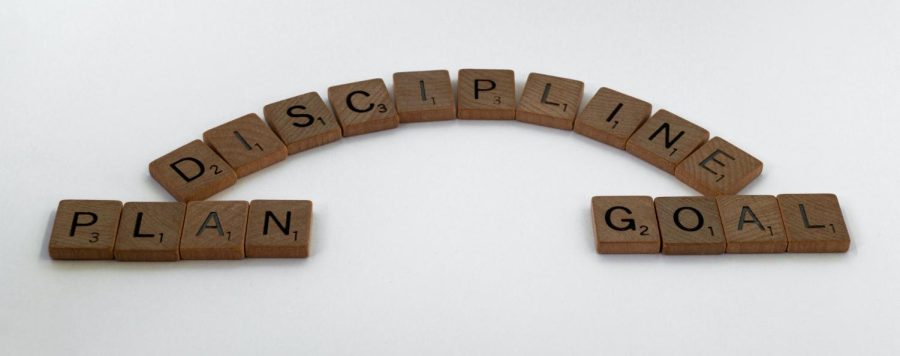Motivation Means Nothing Without Discipline
January 31, 2022
Motivation is a key component of achieving success in life, whether it be academic or personal accomplishment. It grants a large boost of confidence, and shifts one’s mindset into believing that anything is possible. However, from life experiences and ones I gained during my time in the Naval Sea Cadet Corps, I have learned that motivation holds no merit without discipline.
The interdependent relationship between motivation and discipline is similar to that of the ignition and gas pedal in a car. A car’s ignition turns on the vehicle, ready to be used at will by the driver. The car can go anywhere at any speed, and has a variety of components that will get it to its destination. However, simply turning on the ignition of a car doesn’t make it move. Pressing down on the gas pedal is what actually makes the car go forward and reach destinations. Without the gas pedal, the car remains stationary. Similarly, motivation ignites our drive to better ourselves and to reach our goals: both big and small. It also increases our situational awareness of what we have at our disposal to reach our ambitions and how to use them. Nevertheless, our sense of discipline is what pushes us to use our resources and achieve what we want to achieve.
Furthermore, the motivation to succeed is a fleeting sensation as it doesn’t last forever. It is also very fragile; the smallest of factors, such as our mood or a change in our schedule, can kill our motivation as quickly as it is gained. Things like procrastination and mood changes are an inevitability in life, but they can ground our productivity when the confidence gained from motivation dissipates. After all, being productive is considerably more difficult if there’s not a solid reason as to why we believe we should be. As such, it is crucial that we discipline ourselves on being productive as soon as we have the motivation to do so.
According to an article in Second Nature, “The most successful people use a combination of discipline and intrinsic motivation to achieve their goals.”
Gaining motivation isn’t particularly difficult. Setting up a reward for yourself once you finish a task is a good way to self-motivate. However, discipline, which requires developing and maintaining a structured schedule and overall good habits, is more difficult to attain. Discipline requires trying a lot of different methods of forming new behaviors, which subsequently results in a lot of trial and error. Starting with smaller levels of discipline, such as timing yourself on how long it takes you to get ready in the morning, is a good start. Discipline, like motivation, can also form confidence: the difference is that confidence gained from discipline only grows over time instead of diminishing. When we gain confidence from being able to discipline ourselves on smaller things, that confidence snowballs until we feel confident enough to maintain discipline on a larger, more time consuming scale.
Despite this, discipline can cause a mental or physical burnout if it’s not done correctly. If one is focused entirely on productiveness and work, it means they are neglecting to take time and take care of their mental and physical health. When done right, discipline not only means having a structure for productivity, but a structure for well being.
In a report from the Center for Disease Control and Prevention regarding mental health in the workplace, “Depression interferes with a person’s ability to complete physical job tasks about 20% of the time and reduces cognitive performance about 35% of the time.”
Motivation is one of the most important resources that a person can have in order to accomplish great things, but it takes consistent discipline to make the most use out of that motivation. When discipline accompanies motivation, the ceiling for self improvement can only go up for every personal achievement. High school is a time that provides endless sources of motivation for students to push themselves beyond what they think they’re capable of, from surviving difficult classes to establishing new relationships. All of these goals and more can be reached through self- discipline and all constructive habits that it helps build.
Photo courtesy of UNSPLASH.COM

